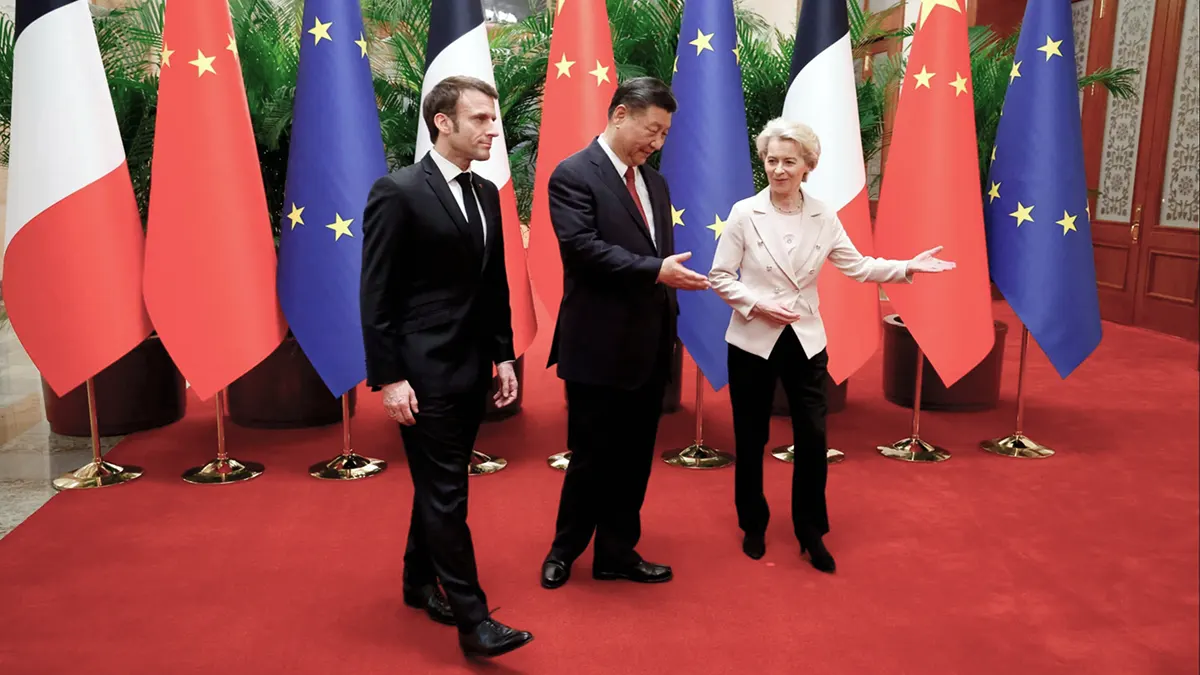The European Union is showing caution in the face of the recent US ban on investment in China’s technology sectoroutline their own strategy.
European response to US executive order
After the White House, under Joe Biden, issued an order restricting investment in Chinese technology because of a potential “national security risk”, the EU said it would not immediately follow this approach.
Instead, Brussels is expected to present proposals by the end of the year that focus on managing investment risks abroad. Economic interdependence with China is one of the main reasons behind this different European decision.
France, Germany, and other countries have shown skepticism about strict investment control initiatives, debate that its economic relationship with China is more complicated than that of the US.
European Commission position and precautions
In June, the European Commission stated its commitment to maintaining international peace and security. The aim is to prevent technological advances that could increase the military and intelligence capabilities of potentially disruptive actors.
The EU diplomatic corps has underscored the importance of a detailed assessment before implementing a restrictive tool, given the likely impact on companies in the bloc.
The different economic structures between the EU and the US, such as the smaller presence of venture capital in Europe, also play a role in the decision.
Trade tensions and challenges with China
The increased restrictions come against a backdrop of growing concerns about China’s access to critical defense and digital technologies, as well as its dominance in supply chains relevant to ecological transitions.
The EU is more conservative in limiting investment in China compared to the US, opting for a “reducing risk” policy. Britain, similarly, has shown a measured attitude.
Countries like France and Germany are trying to balance their economic ties with China, while being careful with important technologies.
Germany’s active participation
Following Biden’s actions, Germany’s Ministry of Economy ensured its active intervention in European discussions to determine the right approach towards China.
Germany’s position on investment and relations with China
Berlin stressed the need to coordinate with allies to prevent the technological advances of Beijing’s military capabilities from jeopardizing global security. He stressed that a strategy must be established to ward off foreign investment risks.
The German government faces a challenge in determining its attitude towards China, its main trading partner. While Foreign Minister Olaf Scholz leaned toward caution, the coalition Greens, in charge of foreign and economic policy, took a more assertive stance.
There was no immediate comment from the Élysée Palace or the French Ministry of Finance on the US decision.
French initiative on relations with China
French President Emmanuel Macron visited Beijing in April, bringing along top executives eager to strengthen economic ties. Macron seeks to reduce France’s dependence on critical fields such as semiconductors and electric batteries.
Bruno Le Maire, France’s economy minister, avoided discussing US restrictions during his visit to China in July, noting that France does not support severing global supply chains due to their high economic costs.
EU direct investment in China has totaled more than 140 billion euros in two decades.

“Entrepreneur. Internet fanatic. Certified zombie scholar. Friendly troublemaker. Bacon expert.”







